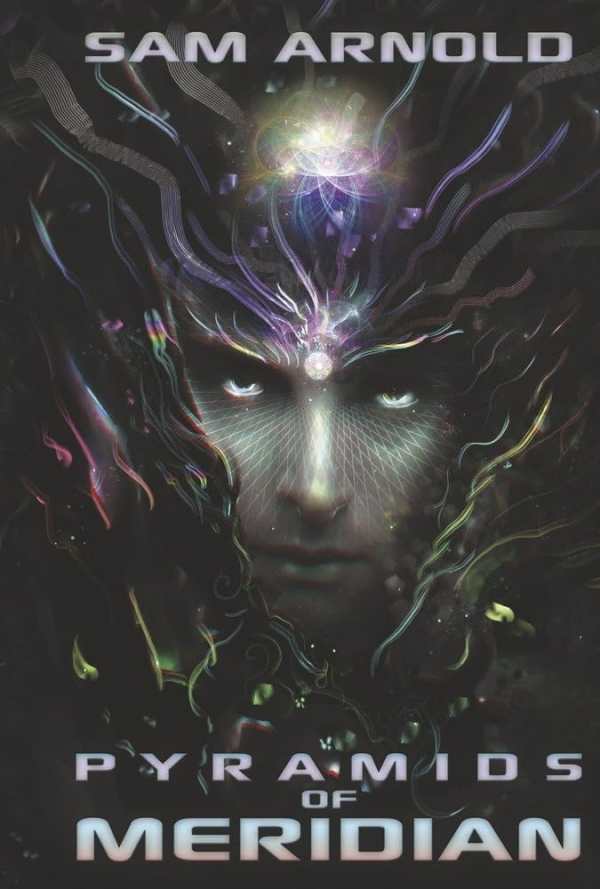
Pyramids of Meridian
Exploring the importance of individuality and choice, Pyramids of Meridian is an epic science fiction adventure.
In Sam Arnold’s science fiction novel Pyramids of Meridian, three soldiers navigate an unexpected afterlife and a threat to all creation.
In the far future on a distant, decimated planet, Kelly is drugged and forced to serve in battle as a subordinate to her former friend Nathan in an endless war for survival. On twentieth-century Earth, Michael is drafted into the Vietnam War, though all he wants to do is create art. After catastrophic events, all three end up in the same place: a strange purgatory where the dead are entrapped by their own memories. But there is far more to this afterlife than they expect. Facing an existential threat to reality, they are placed on opposite sides of a war that will determine the fate of everyone who ever lived.
While Michael struggles to accept his death, Kelly and Nathan enter the afterlife as living souls, recruited for a mission of tremendous scope and importance. Kelly is jaded and skeptical, especially when a man who claims to be God enchants Nathan, whose personal grief and religious fervor cloud his judgment. Even in the face of mounting evidence that neither God nor any of Meridian’s other major players are what they appear to be, Nathan remains devoted, driving a wedge between him and Kelly when they most need to work together. Their conflict, plus Michael’s efforts to find love and a worthy place for himself in the afterlife, makes for compelling drama.
Beings and plans beyond human comprehension loom in the background, appearing at intervals to complicate the characters’ understanding of reality and to further ensnare them in a web of great power and greater terror. But the book’s mind-bending, challenging imagery is rushed through at an overwhelming speed: the characters have little chance to become accustomed to the spaces they’re in before everything changes again, either by their own design or someone else’s.
The book’s unusual phrasing is sometimes atmospheric; at other times, it is distracting. Long sentences and nonintuitive word choices obscure its detailed settings, plot—and quite high stakes. Comparisons repeat—for example, many different events are compared to fireworks, and people are often compared to puppies. Later, an intense sequence sets the stage for a final confrontation in which only a tremendous act of creation and self-sacrifice can forestall an unhappy fate for all humankind, but whose stakes are muted by its too-obscure setup.
Epic in scope yet fueled by human emotions, Pyramids of Meridian is a creative apocalyptic novel about facing reality and using one’s talents for the greater good.
Reviewed by
Eileen Gonzalez
Disclosure: This article is not an endorsement, but a review. The publisher of this book provided free copies of the book and paid a small fee to have their book reviewed by a professional reviewer. Foreword Reviews and Clarion Reviews make no guarantee that the publisher will receive a positive review. Foreword Magazine, Inc. is disclosing this in accordance with the Federal Trade Commission’s 16 CFR, Part 255.
